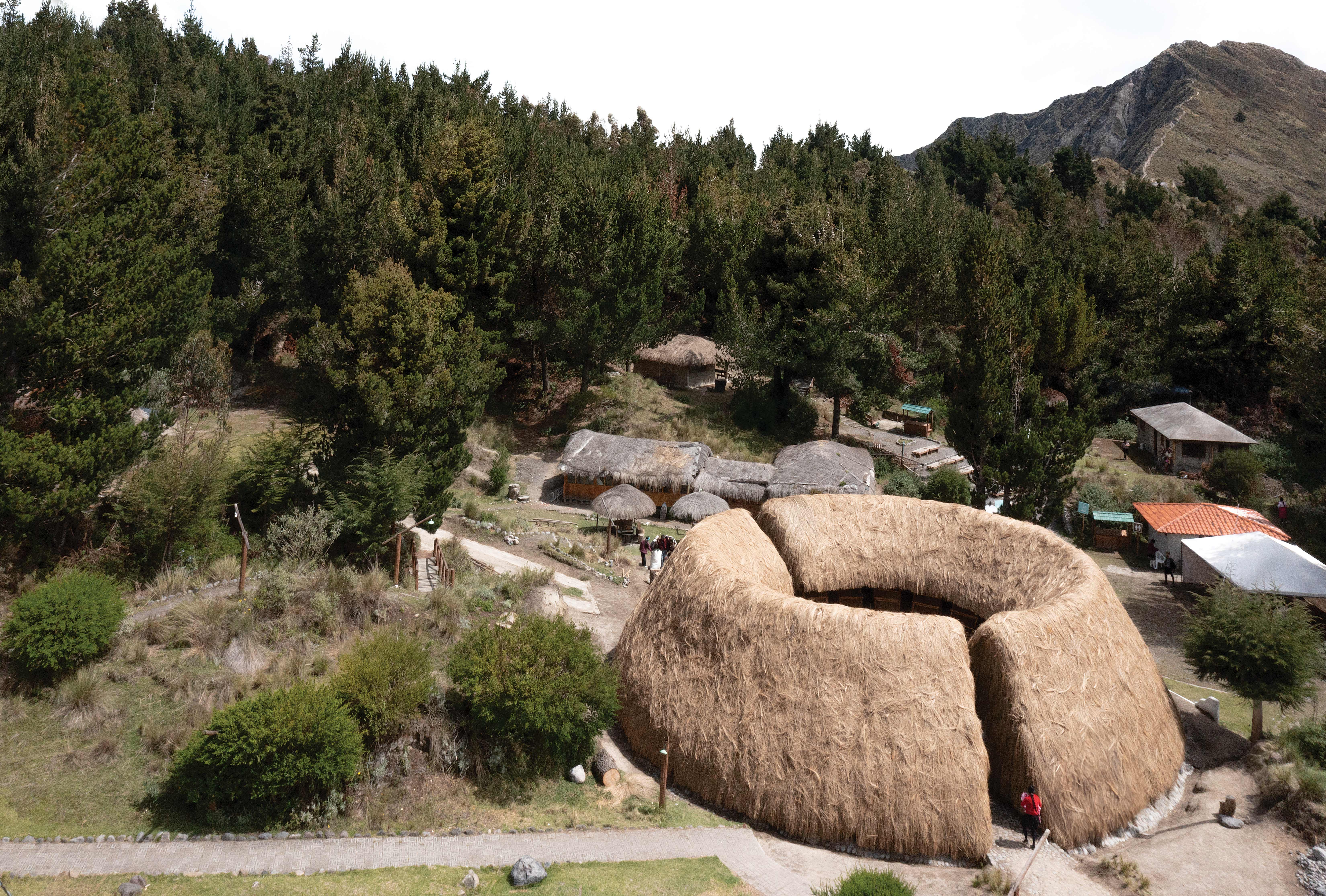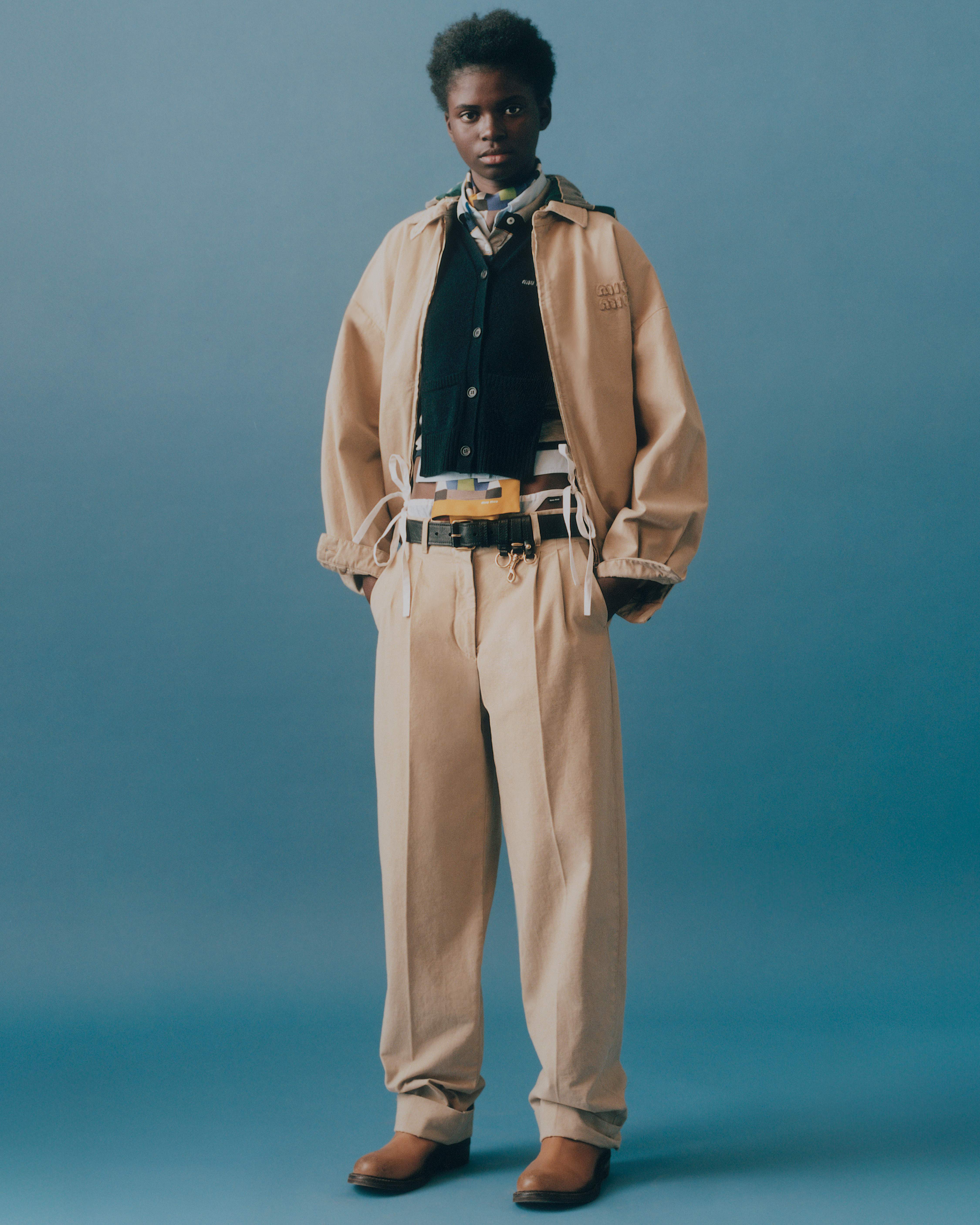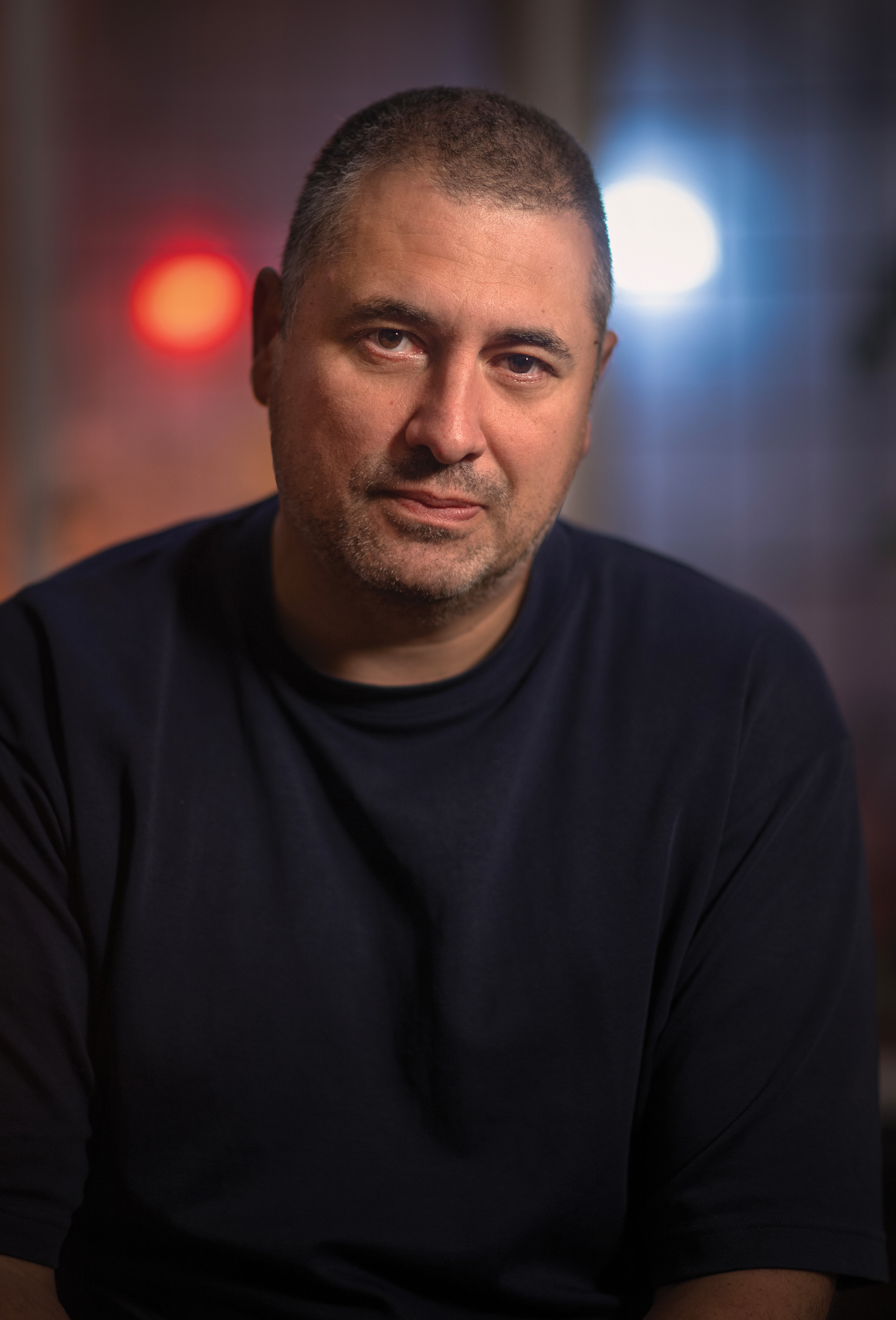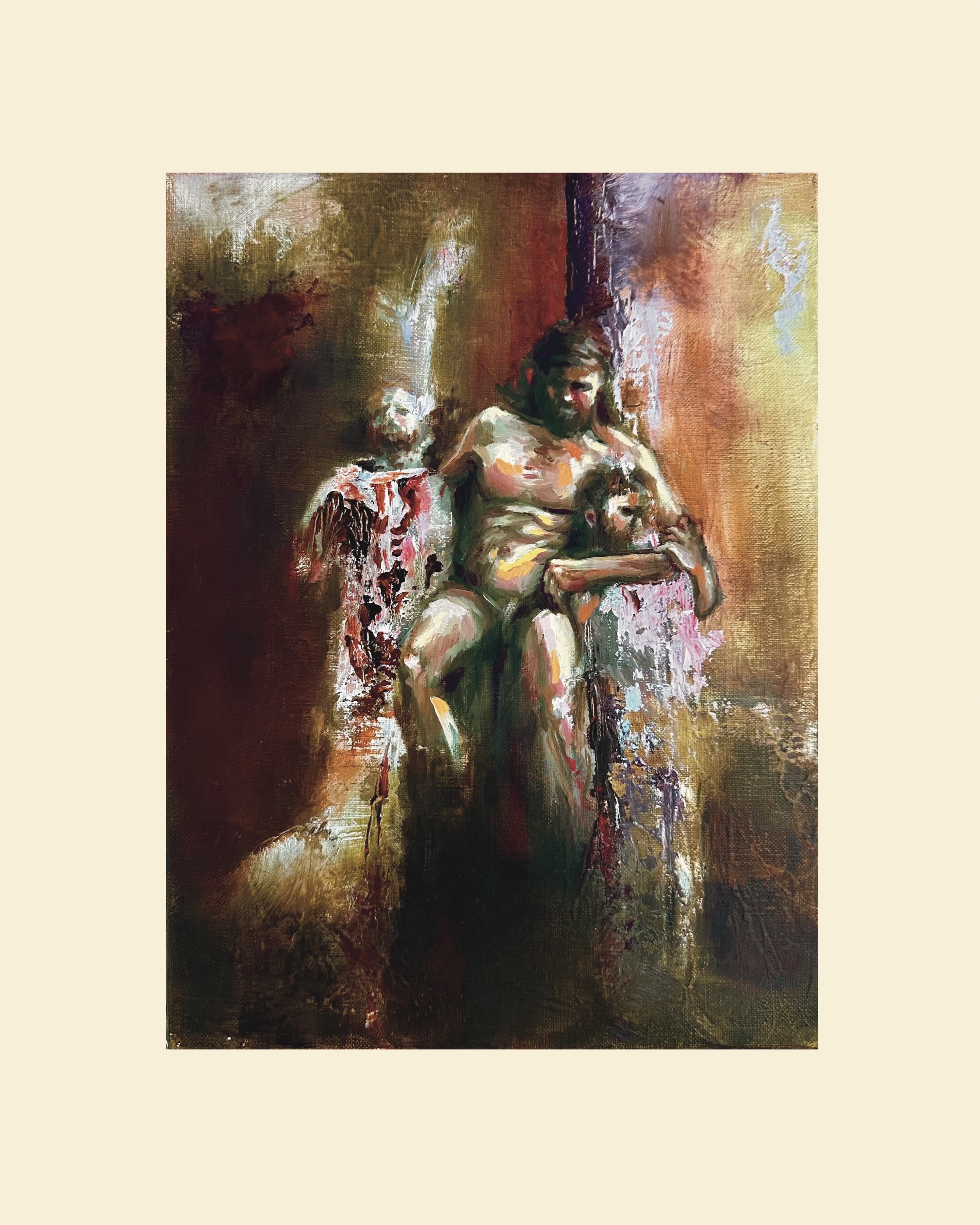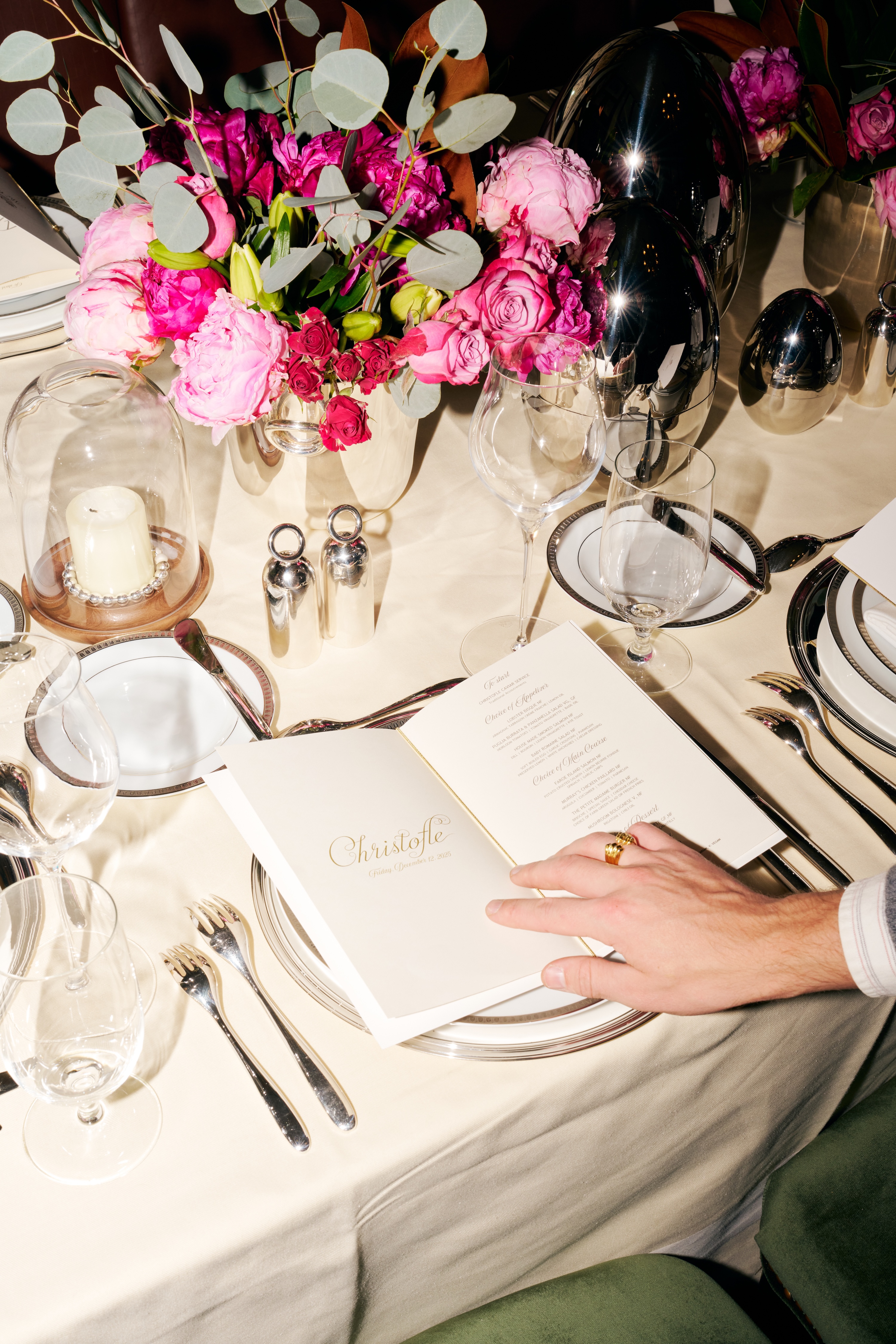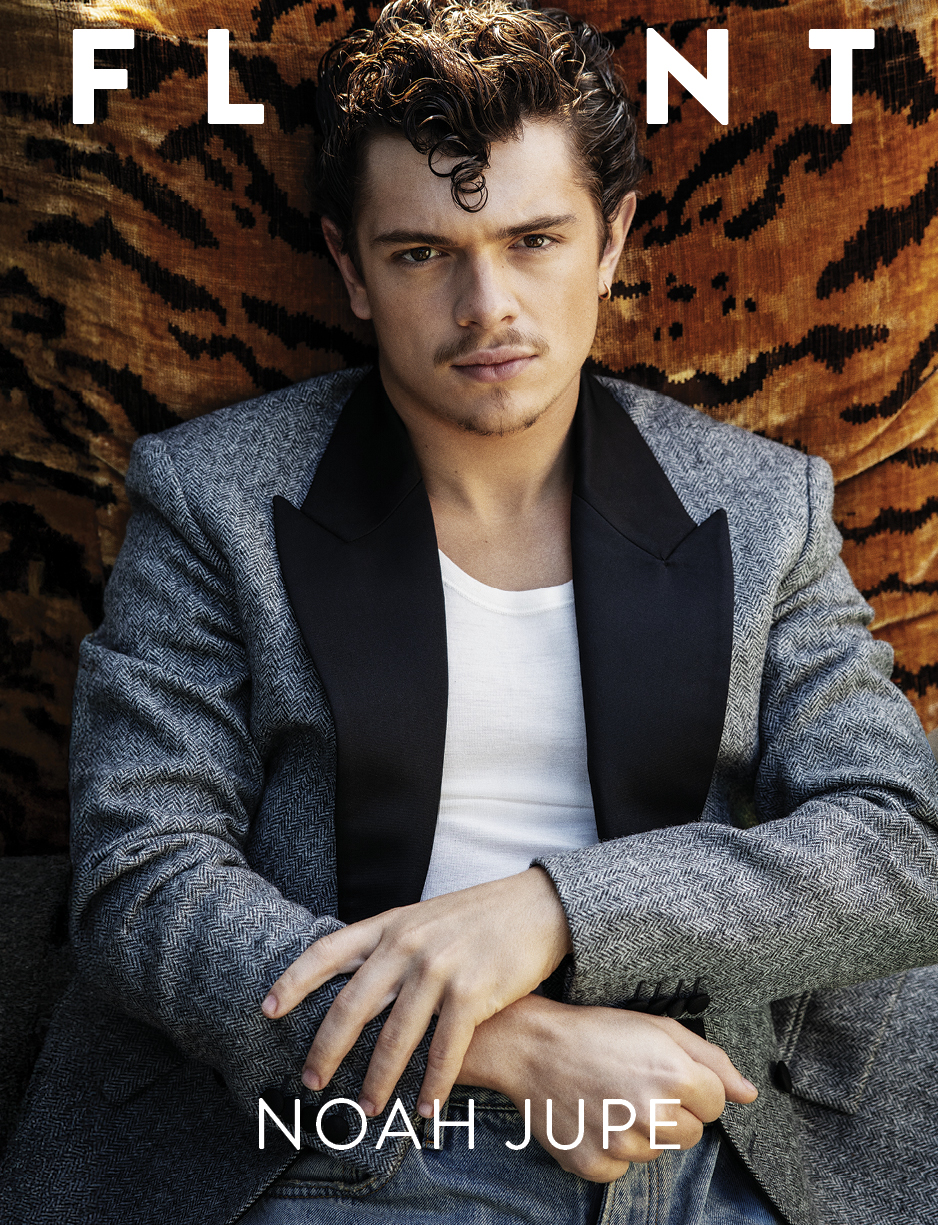

Darin and Greg Bresnitz are no newbs to the world of culinary media. In 2009, the twin duo started producing and hosting Heritage Radio Network's Snacky Tunes, a radio show where they interview members of the culinary community, musicians, and artists. In their newest project, they keep to their culinary roots but try out a different medium.
Joining forces with _Snacky Tunes_ podcast co-producer and long-time friend Khuong Phan, plus publishing company Phaidon, the pair see the manifestation of [“Snacky Tunes: Music Is the Main Ingredient, Chefs and Their Music”](https://www.phaidon.com/store/food-cook/snacky-tunes-9781838661366/) has come to life.
The one-of-a-kind book tells the story of 75 chefs from around the world and how music has impacted their careers and lives all around. Filled with recipes, playlists curated by the chefs, and interviews, the book presents chefs and cuisine thought leaders in a new light.
Read our conversation about their newest project below!
**The concept behind this book is very original, exploring the relationship between chefs and music. What was the inspiration behind it?**
**\[Darin\]** I was living in Boston in the early 2000s, studying Television at Boston University, while going to indie shows, like Fugazi at MassArt, and exploring the city’s culinary institutions, like Deli Haus. I started seeing a lot of parallels between the punk ethos of the bands I loved and the chefs / restaurants I was gravitating to. While I was accustomed to this DIY approach to music, I started to see it develop in the food scene too. When I began thinking about what type of TV shows I’d like to make, I thought I could bring these worlds together and celebrate both artistic disciplines. The result was _Dinner With The Band,_ the first cooking show to combine food and music and since then I’ve been constantly exploring how we can bridge the worlds of music and food.
**\[Greg\]** I have always done radio (now podcasting) since I was 18. After being Co-Music Director of KWVA-FM at the University of Oregon, I graduated enamored with Pacific Northwest musical stalwarts like K Records, Sub Pop and Kill Rock Stars along with the rise of dance-punk music (all Phones remixes please). When we started the _Snacky Tunes_ podcast in 2009, the show was evenly split between chefs and musicians, with a few exceptions like [Marc Vetri](https://open.spotify.com/episode/3JpxFMfnbseFQjUTiG4cR6) (featured in the book) sitting in on lead guitar while also talking about his culinary works. Over the years, we saw over and over again that our guests, regardless of their discipline, gave similar answers about using their talents as a means to authentically express themselves, and as vehicles for unique personal connection. Both food and music were instruments of creative expression. These stories came out over the years, but we never saw a place where they were collected and shared in a cohesive way. This is how the book was born.


**What was the process like getting this book from concept to actual product?**
**\[Greg\]** This idea for the book was born in July 2017 in Mexico City following a few mezcals and tuna tostadas at Contramar (featured in book). It had become clear there was a wealth of stories that had been shared on the podcast, but not collected in a way that people could see music as a creative force in the culinary world. A friend from the publishing world gave me a format to follow, and said if I did that then we would have a book proposal. With a number of friends’ tough love and encouragement, we eventually had something in working order.
Like many people, we were fans of Phaidon and the beautiful books they published. Over the years, we’ve interviewed a number of their authors and got to know the larger team. In Oct 2017, I had just come home to Brooklyn following a few weeks on the road and headed right to a Phaidon cookbook release dinner. The following night at the book signing I worked up the nerve to tell Emily Takoudes, Phaidon’s Executive Commissioning Editor of Food & Drink, that we were working on a proposal and asked if she would send it to people she knew in the industry, never thinking we would be at the level of their publications. She said sure, but asked if she could look at it first. She believed in the project from the first moment and the rest is history.
**\[Darin\]** Initially, the idea was to dig through the podcast’s archives to pull out the best of what chefs had said about music and their creative relationship with it. Once we started digging in, however, we quickly realized we were going to have to do everything from scratch. From there, we started putting together a diverse list of chefs from all over the world who we were either friends with, loved from afar or discovered during our research. Originally we had planned on working with 50 chefs, but once we got going we realized that to truly represent the world, we wanted to include closer to 80 or so chefs and restaurateurs. It took over a year to compile all of the interviews, playlists and recipes, along with editorial feedback from Phaidon, then another half a year for Omnivore to design. All in all, it’s been a three-year process from start to finish.
**You guys have made cooking shows and podcasts/radio shows, how different was working on this book?**
**\[Darin\]** Before this book, so much of what I have worked on has not been a physical product. That’s not to say they don’t exist, but you couldn’t hold them or put them on a shelf. Knowing that this was going to exist in people’s homes, I brought a different mindset to what this needed to be. In addition to the tactile nature, this was the most amount of chefs I’ve ever worked with for one project. Many times, an episode of a TV show or podcast focuses on one person, never a giant compilation like this book. Knowing that the parts of the book were going to add up to a greater whole, the curation of who was in the book took a lot more work to pull together.
**\[Greg\]** I wanted to make sure that through the individual stories we also told larger narratives for the whole project. It would have been easier to have simple questions about favorite songs and going to shows that everyone could relate to in their own way. Unlike the podcast which is just an hour long, the book provided the opportunity to go many layers underneath the surface and dig into a number of themes like identity (nationality / ethnicity / cultural); the importance of home (hometowns and new home / immigration stories); and music as a creative force (creating dishes / building restaurants). We blew past the original number of commissioned chefs because there was a sense that we had not fully explored these themes. You can read the book individually and get a lot out of it, but if you commit to the whole thing, there is so much richness from the chefs’ stories.


**Do you have a favorite memory from putting it together?**
**\[Greg\]** While we personally knew some of the chefs featured in the book, we met a majority of them for the first time when we started putting everything together. Within moments of our interviews, we were diving into childhood experiences, cherished musical memories, difficult times both personally and professionally, etc. We split the outreach and there were so many times during the interviews when we would text each other quotes and stories, amazed at how much our thesis was fact. I would be remiss to not mention Ben Shewry who told not one, but two of the most incredible stories ever. Hands down. Full stop. I won’t give anything away but it was early on in the process and after his interview, I called Darin and said we have something special. Also, Eyal Shani made me cry multiple times during our talk. His way with words and connection to music is on another level.
**\[Darin\]** There were so many times during the process when Greg, Khuong and I would be amazed that these chefs were sharing so many personal feelings and stories from their lives, especially the chefs who we were talking with for the first time. Everyone in the book is a lifelong music fan, whose creative process has been inspired by the songs and bands they love. For many of them, this is the first time they were able to talk about it on the record and that passion really came through.
**Did some of the chef’s music tastes surprise you?**
**\[Darin\]** There was a lot of discovery throughout the entire process that was extremely humbling, because I realized how much music is out there, despite how much I thought I knew. Seeing all of the playlists and stories together I realized I’ve barely scratched the surface. For example, Manu Buffara’s playlist featuring a lot of Brazlian artists, Selassie Atadika’s playlist showcasing a lot of African artists and Sean Brock’s deep dive into the South really opened up my mind to some beautiful music that I had never deeply explored before.
**\[Greg\]** What was interesting to me was regardless of geography certain songs and certain artists kept getting mentioned again and again. Kendrick Lamar takes top billing, followed by the Roots no question. “Harvest Moon” by Neil Young was the song that came up multiple times with some of the most heartbreaking and beautiful stories connected to it. That was definitely a surprise. There is an index in the back of the book that name checks all the artists so you can see how they are woven into the different chefs’ playlists and stories.
It was also interesting to see how current pop music was used to motivate staff ahead of service and when they were being crushed. Since kitchens are a good microcosm of the world, music was a universal language when communication might have otherwise been difficult.
**The book released globally on September 3rd. What’s the reaction been like?**
**\[Greg\]** People did not really know what type of book this was going to be. Phaidon has a reputation of making beautiful unique books, pairing authors with designers. We delivered 200,000 words and prayed. Phaidon came back to us with [Omnivore](http://www.omnivorous.org/) as the design team, and they took a dense book, made it playful and lively. I can safely say I have never seen a book like this, and that is the response we are getting from a design and content perspective. It’s something new and when people get their hands on it, there is a strong reaction.
**\[Darin\]** It has been really amazing to see the global reaction about the book. There are so many different ways to get into the book, through the stories, recipes and playlists, so it’s really beautiful to see how people are connecting to it in their own way.
**Do you see yourselves doing a similar project in the future?**
**\[Darin\]** _Snacky Tunes_ just crossed over the 450 episode mark, and we have no plans of stopping the show. As long as people are willing to sit down to chat with us about their love of food and music and people enjoy it, we’ll keep putting out programming that features it.
**\[Greg\]** Of the 200,000 words we delivered, we cut it down to 110,000. We had to pick the cream of the crop and there were so many more stories that we just did not have the room to share. What has been incredible is that people have started sharing their own stories with us in response to the book, and we are equally floored by them. What we have learned over the past 11 years is that there is no shortage of chefs who love, are inspired by and are connected to music. As long as those stories remain untold, we will keep being a venue to share them.
 
Darin and Greg Bresnitz are no newbs to the world of culinary media. In 2009, the twin duo started producing and hosting Heritage Radio Network's Snacky Tunes, a radio show where they interview members of the culinary community, musicians, and artists. In their newest project, they keep to their culinary roots but try out a different medium.
Joining forces with _Snacky Tunes_ podcast co-producer and long-time friend Khuong Phan, plus publishing company Phaidon, the pair see the manifestation of [“Snacky Tunes: Music Is the Main Ingredient, Chefs and Their Music”](https://www.phaidon.com/store/food-cook/snacky-tunes-9781838661366/) has come to life.
The one-of-a-kind book tells the story of 75 chefs from around the world and how music has impacted their careers and lives all around. Filled with recipes, playlists curated by the chefs, and interviews, the book presents chefs and cuisine thought leaders in a new light.
Read our conversation about their newest project below!
**The concept behind this book is very original, exploring the relationship between chefs and music. What was the inspiration behind it?**
**\[Darin\]** I was living in Boston in the early 2000s, studying Television at Boston University, while going to indie shows, like Fugazi at MassArt, and exploring the city’s culinary institutions, like Deli Haus. I started seeing a lot of parallels between the punk ethos of the bands I loved and the chefs / restaurants I was gravitating to. While I was accustomed to this DIY approach to music, I started to see it develop in the food scene too. When I began thinking about what type of TV shows I’d like to make, I thought I could bring these worlds together and celebrate both artistic disciplines. The result was _Dinner With The Band,_ the first cooking show to combine food and music and since then I’ve been constantly exploring how we can bridge the worlds of music and food.
**\[Greg\]** I have always done radio (now podcasting) since I was 18. After being Co-Music Director of KWVA-FM at the University of Oregon, I graduated enamored with Pacific Northwest musical stalwarts like K Records, Sub Pop and Kill Rock Stars along with the rise of dance-punk music (all Phones remixes please). When we started the _Snacky Tunes_ podcast in 2009, the show was evenly split between chefs and musicians, with a few exceptions like [Marc Vetri](https://open.spotify.com/episode/3JpxFMfnbseFQjUTiG4cR6) (featured in the book) sitting in on lead guitar while also talking about his culinary works. Over the years, we saw over and over again that our guests, regardless of their discipline, gave similar answers about using their talents as a means to authentically express themselves, and as vehicles for unique personal connection. Both food and music were instruments of creative expression. These stories came out over the years, but we never saw a place where they were collected and shared in a cohesive way. This is how the book was born.

Darin and Greg Bresnitz are no newbs to the world of culinary media. In 2009, the twin duo started producing and hosting Heritage Radio Network's Snacky Tunes, a radio show where they interview members of the culinary community, musicians, and artists. In their newest project, they keep to their culinary roots but try out a different medium.
Joining forces with _Snacky Tunes_ podcast co-producer and long-time friend Khuong Phan, plus publishing company Phaidon, the pair see the manifestation of [“Snacky Tunes: Music Is the Main Ingredient, Chefs and Their Music”](https://www.phaidon.com/store/food-cook/snacky-tunes-9781838661366/) has come to life.
The one-of-a-kind book tells the story of 75 chefs from around the world and how music has impacted their careers and lives all around. Filled with recipes, playlists curated by the chefs, and interviews, the book presents chefs and cuisine thought leaders in a new light.
Read our conversation about their newest project below!
**The concept behind this book is very original, exploring the relationship between chefs and music. What was the inspiration behind it?**
**\[Darin\]** I was living in Boston in the early 2000s, studying Television at Boston University, while going to indie shows, like Fugazi at MassArt, and exploring the city’s culinary institutions, like Deli Haus. I started seeing a lot of parallels between the punk ethos of the bands I loved and the chefs / restaurants I was gravitating to. While I was accustomed to this DIY approach to music, I started to see it develop in the food scene too. When I began thinking about what type of TV shows I’d like to make, I thought I could bring these worlds together and celebrate both artistic disciplines. The result was _Dinner With The Band,_ the first cooking show to combine food and music and since then I’ve been constantly exploring how we can bridge the worlds of music and food.
**\[Greg\]** I have always done radio (now podcasting) since I was 18. After being Co-Music Director of KWVA-FM at the University of Oregon, I graduated enamored with Pacific Northwest musical stalwarts like K Records, Sub Pop and Kill Rock Stars along with the rise of dance-punk music (all Phones remixes please). When we started the _Snacky Tunes_ podcast in 2009, the show was evenly split between chefs and musicians, with a few exceptions like [Marc Vetri](https://open.spotify.com/episode/3JpxFMfnbseFQjUTiG4cR6) (featured in the book) sitting in on lead guitar while also talking about his culinary works. Over the years, we saw over and over again that our guests, regardless of their discipline, gave similar answers about using their talents as a means to authentically express themselves, and as vehicles for unique personal connection. Both food and music were instruments of creative expression. These stories came out over the years, but we never saw a place where they were collected and shared in a cohesive way. This is how the book was born.
 
**What was the process like getting this book from concept to actual product?**
**\[Greg\]** This idea for the book was born in July 2017 in Mexico City following a few mezcals and tuna tostadas at Contramar (featured in book). It had become clear there was a wealth of stories that had been shared on the podcast, but not collected in a way that people could see music as a creative force in the culinary world. A friend from the publishing world gave me a format to follow, and said if I did that then we would have a book proposal. With a number of friends’ tough love and encouragement, we eventually had something in working order.
Like many people, we were fans of Phaidon and the beautiful books they published. Over the years, we’ve interviewed a number of their authors and got to know the larger team. In Oct 2017, I had just come home to Brooklyn following a few weeks on the road and headed right to a Phaidon cookbook release dinner. The following night at the book signing I worked up the nerve to tell Emily Takoudes, Phaidon’s Executive Commissioning Editor of Food & Drink, that we were working on a proposal and asked if she would send it to people she knew in the industry, never thinking we would be at the level of their publications. She said sure, but asked if she could look at it first. She believed in the project from the first moment and the rest is history.
**\[Darin\]** Initially, the idea was to dig through the podcast’s archives to pull out the best of what chefs had said about music and their creative relationship with it. Once we started digging in, however, we quickly realized we were going to have to do everything from scratch. From there, we started putting together a diverse list of chefs from all over the world who we were either friends with, loved from afar or discovered during our research. Originally we had planned on working with 50 chefs, but once we got going we realized that to truly represent the world, we wanted to include closer to 80 or so chefs and restaurateurs. It took over a year to compile all of the interviews, playlists and recipes, along with editorial feedback from Phaidon, then another half a year for Omnivore to design. All in all, it’s been a three-year process from start to finish.
**You guys have made cooking shows and podcasts/radio shows, how different was working on this book?**
**\[Darin\]** Before this book, so much of what I have worked on has not been a physical product. That’s not to say they don’t exist, but you couldn’t hold them or put them on a shelf. Knowing that this was going to exist in people’s homes, I brought a different mindset to what this needed to be. In addition to the tactile nature, this was the most amount of chefs I’ve ever worked with for one project. Many times, an episode of a TV show or podcast focuses on one person, never a giant compilation like this book. Knowing that the parts of the book were going to add up to a greater whole, the curation of who was in the book took a lot more work to pull together.
**\[Greg\]** I wanted to make sure that through the individual stories we also told larger narratives for the whole project. It would have been easier to have simple questions about favorite songs and going to shows that everyone could relate to in their own way. Unlike the podcast which is just an hour long, the book provided the opportunity to go many layers underneath the surface and dig into a number of themes like identity (nationality / ethnicity / cultural); the importance of home (hometowns and new home / immigration stories); and music as a creative force (creating dishes / building restaurants). We blew past the original number of commissioned chefs because there was a sense that we had not fully explored these themes. You can read the book individually and get a lot out of it, but if you commit to the whole thing, there is so much richness from the chefs’ stories.

**What was the process like getting this book from concept to actual product?**
**\[Greg\]** This idea for the book was born in July 2017 in Mexico City following a few mezcals and tuna tostadas at Contramar (featured in book). It had become clear there was a wealth of stories that had been shared on the podcast, but not collected in a way that people could see music as a creative force in the culinary world. A friend from the publishing world gave me a format to follow, and said if I did that then we would have a book proposal. With a number of friends’ tough love and encouragement, we eventually had something in working order.
Like many people, we were fans of Phaidon and the beautiful books they published. Over the years, we’ve interviewed a number of their authors and got to know the larger team. In Oct 2017, I had just come home to Brooklyn following a few weeks on the road and headed right to a Phaidon cookbook release dinner. The following night at the book signing I worked up the nerve to tell Emily Takoudes, Phaidon’s Executive Commissioning Editor of Food & Drink, that we were working on a proposal and asked if she would send it to people she knew in the industry, never thinking we would be at the level of their publications. She said sure, but asked if she could look at it first. She believed in the project from the first moment and the rest is history.
**\[Darin\]** Initially, the idea was to dig through the podcast’s archives to pull out the best of what chefs had said about music and their creative relationship with it. Once we started digging in, however, we quickly realized we were going to have to do everything from scratch. From there, we started putting together a diverse list of chefs from all over the world who we were either friends with, loved from afar or discovered during our research. Originally we had planned on working with 50 chefs, but once we got going we realized that to truly represent the world, we wanted to include closer to 80 or so chefs and restaurateurs. It took over a year to compile all of the interviews, playlists and recipes, along with editorial feedback from Phaidon, then another half a year for Omnivore to design. All in all, it’s been a three-year process from start to finish.
**You guys have made cooking shows and podcasts/radio shows, how different was working on this book?**
**\[Darin\]** Before this book, so much of what I have worked on has not been a physical product. That’s not to say they don’t exist, but you couldn’t hold them or put them on a shelf. Knowing that this was going to exist in people’s homes, I brought a different mindset to what this needed to be. In addition to the tactile nature, this was the most amount of chefs I’ve ever worked with for one project. Many times, an episode of a TV show or podcast focuses on one person, never a giant compilation like this book. Knowing that the parts of the book were going to add up to a greater whole, the curation of who was in the book took a lot more work to pull together.
**\[Greg\]** I wanted to make sure that through the individual stories we also told larger narratives for the whole project. It would have been easier to have simple questions about favorite songs and going to shows that everyone could relate to in their own way. Unlike the podcast which is just an hour long, the book provided the opportunity to go many layers underneath the surface and dig into a number of themes like identity (nationality / ethnicity / cultural); the importance of home (hometowns and new home / immigration stories); and music as a creative force (creating dishes / building restaurants). We blew past the original number of commissioned chefs because there was a sense that we had not fully explored these themes. You can read the book individually and get a lot out of it, but if you commit to the whole thing, there is so much richness from the chefs’ stories.
 
**Do you have a favorite memory from putting it together?**
**\[Greg\]** While we personally knew some of the chefs featured in the book, we met a majority of them for the first time when we started putting everything together. Within moments of our interviews, we were diving into childhood experiences, cherished musical memories, difficult times both personally and professionally, etc. We split the outreach and there were so many times during the interviews when we would text each other quotes and stories, amazed at how much our thesis was fact. I would be remiss to not mention Ben Shewry who told not one, but two of the most incredible stories ever. Hands down. Full stop. I won’t give anything away but it was early on in the process and after his interview, I called Darin and said we have something special. Also, Eyal Shani made me cry multiple times during our talk. His way with words and connection to music is on another level.
**\[Darin\]** There were so many times during the process when Greg, Khuong and I would be amazed that these chefs were sharing so many personal feelings and stories from their lives, especially the chefs who we were talking with for the first time. Everyone in the book is a lifelong music fan, whose creative process has been inspired by the songs and bands they love. For many of them, this is the first time they were able to talk about it on the record and that passion really came through.
**Did some of the chef’s music tastes surprise you?**
**\[Darin\]** There was a lot of discovery throughout the entire process that was extremely humbling, because I realized how much music is out there, despite how much I thought I knew. Seeing all of the playlists and stories together I realized I’ve barely scratched the surface. For example, Manu Buffara’s playlist featuring a lot of Brazlian artists, Selassie Atadika’s playlist showcasing a lot of African artists and Sean Brock’s deep dive into the South really opened up my mind to some beautiful music that I had never deeply explored before.
**\[Greg\]** What was interesting to me was regardless of geography certain songs and certain artists kept getting mentioned again and again. Kendrick Lamar takes top billing, followed by the Roots no question. “Harvest Moon” by Neil Young was the song that came up multiple times with some of the most heartbreaking and beautiful stories connected to it. That was definitely a surprise. There is an index in the back of the book that name checks all the artists so you can see how they are woven into the different chefs’ playlists and stories.
It was also interesting to see how current pop music was used to motivate staff ahead of service and when they were being crushed. Since kitchens are a good microcosm of the world, music was a universal language when communication might have otherwise been difficult.
**The book released globally on September 3rd. What’s the reaction been like?**
**\[Greg\]** People did not really know what type of book this was going to be. Phaidon has a reputation of making beautiful unique books, pairing authors with designers. We delivered 200,000 words and prayed. Phaidon came back to us with [Omnivore](http://www.omnivorous.org/) as the design team, and they took a dense book, made it playful and lively. I can safely say I have never seen a book like this, and that is the response we are getting from a design and content perspective. It’s something new and when people get their hands on it, there is a strong reaction.
**\[Darin\]** It has been really amazing to see the global reaction about the book. There are so many different ways to get into the book, through the stories, recipes and playlists, so it’s really beautiful to see how people are connecting to it in their own way.
**Do you see yourselves doing a similar project in the future?**
**\[Darin\]** _Snacky Tunes_ just crossed over the 450 episode mark, and we have no plans of stopping the show. As long as people are willing to sit down to chat with us about their love of food and music and people enjoy it, we’ll keep putting out programming that features it.
**\[Greg\]** Of the 200,000 words we delivered, we cut it down to 110,000. We had to pick the cream of the crop and there were so many more stories that we just did not have the room to share. What has been incredible is that people have started sharing their own stories with us in response to the book, and we are equally floored by them. What we have learned over the past 11 years is that there is no shortage of chefs who love, are inspired by and are connected to music. As long as those stories remain untold, we will keep being a venue to share them.

**Do you have a favorite memory from putting it together?**
**\[Greg\]** While we personally knew some of the chefs featured in the book, we met a majority of them for the first time when we started putting everything together. Within moments of our interviews, we were diving into childhood experiences, cherished musical memories, difficult times both personally and professionally, etc. We split the outreach and there were so many times during the interviews when we would text each other quotes and stories, amazed at how much our thesis was fact. I would be remiss to not mention Ben Shewry who told not one, but two of the most incredible stories ever. Hands down. Full stop. I won’t give anything away but it was early on in the process and after his interview, I called Darin and said we have something special. Also, Eyal Shani made me cry multiple times during our talk. His way with words and connection to music is on another level.
**\[Darin\]** There were so many times during the process when Greg, Khuong and I would be amazed that these chefs were sharing so many personal feelings and stories from their lives, especially the chefs who we were talking with for the first time. Everyone in the book is a lifelong music fan, whose creative process has been inspired by the songs and bands they love. For many of them, this is the first time they were able to talk about it on the record and that passion really came through.
**Did some of the chef’s music tastes surprise you?**
**\[Darin\]** There was a lot of discovery throughout the entire process that was extremely humbling, because I realized how much music is out there, despite how much I thought I knew. Seeing all of the playlists and stories together I realized I’ve barely scratched the surface. For example, Manu Buffara’s playlist featuring a lot of Brazlian artists, Selassie Atadika’s playlist showcasing a lot of African artists and Sean Brock’s deep dive into the South really opened up my mind to some beautiful music that I had never deeply explored before.
**\[Greg\]** What was interesting to me was regardless of geography certain songs and certain artists kept getting mentioned again and again. Kendrick Lamar takes top billing, followed by the Roots no question. “Harvest Moon” by Neil Young was the song that came up multiple times with some of the most heartbreaking and beautiful stories connected to it. That was definitely a surprise. There is an index in the back of the book that name checks all the artists so you can see how they are woven into the different chefs’ playlists and stories.
It was also interesting to see how current pop music was used to motivate staff ahead of service and when they were being crushed. Since kitchens are a good microcosm of the world, music was a universal language when communication might have otherwise been difficult.
**The book released globally on September 3rd. What’s the reaction been like?**
**\[Greg\]** People did not really know what type of book this was going to be. Phaidon has a reputation of making beautiful unique books, pairing authors with designers. We delivered 200,000 words and prayed. Phaidon came back to us with [Omnivore](http://www.omnivorous.org/) as the design team, and they took a dense book, made it playful and lively. I can safely say I have never seen a book like this, and that is the response we are getting from a design and content perspective. It’s something new and when people get their hands on it, there is a strong reaction.
**\[Darin\]** It has been really amazing to see the global reaction about the book. There are so many different ways to get into the book, through the stories, recipes and playlists, so it’s really beautiful to see how people are connecting to it in their own way.
**Do you see yourselves doing a similar project in the future?**
**\[Darin\]** _Snacky Tunes_ just crossed over the 450 episode mark, and we have no plans of stopping the show. As long as people are willing to sit down to chat with us about their love of food and music and people enjoy it, we’ll keep putting out programming that features it.
**\[Greg\]** Of the 200,000 words we delivered, we cut it down to 110,000. We had to pick the cream of the crop and there were so many more stories that we just did not have the room to share. What has been incredible is that people have started sharing their own stories with us in response to the book, and we are equally floored by them. What we have learned over the past 11 years is that there is no shortage of chefs who love, are inspired by and are connected to music. As long as those stories remain untold, we will keep being a venue to share them.


